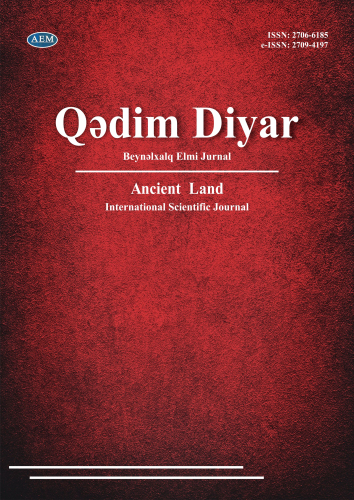DOI: https://doi.org/10.36719/2706-6185/32/125-129
Yusif Həsənli
Azərbaycan Dövlət Neft və Sənaye Universiteti
magistrant
svinksyusif@gmail.com
RƏQƏMSAL İQTİSADİYYATIN MÜASİR FORMA VƏ İNKİŞAFI
Xülasə
Rəqəmsal iqtisadiyyatın bəzi əhəmiyyətli təsirlərini artıq indidən sadalamaq olar: əhali və biznes getdikcə onlayn qarşılıqlı fəaliyyətə, xidmətə keçir, canlı əmək robotlaşdırılmış şəkildə həyata keçirilir, yeni növ malların, o cümlədən insan orqanlarının kompüterləşdirilmiş istehsalına daha çox diqqət yetirilir. Rəqəmsal iqtisadiyyatın mahiyyəti və məzmunu ilə bağlı vahid yanaşmanın hələ mövcud olmadığını qəbul edərək, deyə bilərik ki, rəqəmsal iqtisadiyyat e-biznes və e-kommersiyanın e-məhsul və xidmətlər sistemi, İKT-dən istifadəyə əsaslanan iqtisadi münasibətlər sistemi, rəqəmsal texnologiyalara istinadla biznes modellərin, menecmentin və istehsal üsulunun məcmusu, idarəetmə proseslərinin avtomatlaşdırılmasına istinad edən dövlətin təsərrüfat fəaliyyətidir, obyekt və proseslərin əmtəə, tələb, təklif, xidmətlər, müxtəlif idarəetmə modellərinin elektron məkana köçürülməsidir.
Ölkəmizin əsas hədəfləri iqtisadiyyatın rəqəmsallaşması, rəqəmsal iqtisadiyyat quruculuğu, texnoloji müstəqilliyin və infrastruktur təhlükəsizliyin təmin olunması ilə ölkənin rəqabət qabiliyyətinin yüksəldilməsidir. Rəqəmsal iqtisadiyyatın formalaşması prosesini izləmək üçün elektron ticarət dövriyyəsi, onlayn mağazaların və ticarət platformalarının, kompüter istifadə edən və internetə çıxışı olan istifadəçilərin sayı, əhalinin kompüter savadlılığı səviyyəsi və s. kimi göstəricilərdən istifadə olunur.
Açar sözlər: rəqəmsal iqtisadiyyat, kiberbiznes, rəqəmsal informasiya, texnoloji inqilab, rəqəmsal təhsil
Yusif Hasanli
Azerbaijan State Oil and Industry University
master student
svinksyusif@gmail.com
The modern form and development of the digital economy
Abstract
Some important effects of the digital economy can already be listed: population and business are increasingly moving to online interaction and services, live labor is being performed robotically, more attention is being paid to the computerized production of new types of goods and human organs. Recognizing that there is still no unifıed approach to the essence and content of the digital economy, we can say that the digital economy is a system of e-business and e-commerce, e-products and services, a system of economic relations based on the use of ICT, business models with reference to digital technologies, the totality of management and production method is the economic activity of the economic activity of the state referring to the automation of management processes, the transfer of objects and processes to the electronic space of goods, demand, supply, services, various management models.
The main goals of our country are digitization of the economy, building a digital economy, increasing the country’s competitiveness by ensuring technological independence and infrastructure security. In order to monitor the process of formation of the digital economy, electronic commerce circulation, the number of online stores and trading platforms, the number of users who use computers and have access to the Internet, the level of computer literacy of the population, etc. Such indicatiors were used.
Keywords: digital economy, cyber business, digital information, technological revolution, digital education

